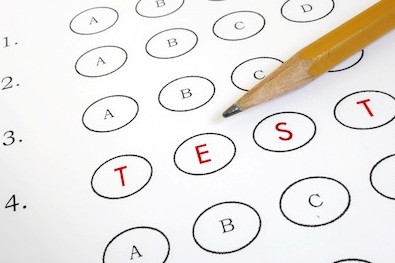SAT Undergoes Sweeping Revisions
Because of the new changes coming to the SAT, the topic of the test’s effectiveness has been called into question once again. The SAT’s purpose is to predict how well a student will do in his or her first year of college and a student’s SAT scores are generally considered by colleges in conjunction with many other factors in an application, according to Director of College Counseling Kemp Hoversten. However, many people find colleges’ emphasis on the test to be unfair for a number of reasons.
Some of the changes to the test—which will be implemented in spring of 2016—include more questions about common vocabulary, rather than the obscure words the test is known for, and math sections that are more focused on the curricula typically presented in high school. These changes represent an attempt to increase the accuracy of the scores in predicting a student’s academic success. Associate Director of College Counseling Julie Carter believes that “it makes sense [… to be] reevaluating to make [the test] more relevant to today.”
According to ABC News, many studies have found little to no correlation between SAT scores and a student’s success in their first year of college. Most students admitted to college score within a narrow range on the SAT. However, at most colleges, students’ grade point averages span a wide range. Because of this, two students might have similar SAT scores while their first year GPAs could be completely different. Thus, it seems unlikely that the current SAT is an accurate predictor of a student’s academic success in college.
The accuracy of the SAT has been called into question as well. Colleges often emphasize the scores of their applicants and because of this, students will often compare their scores to those of students who were accepted into top colleges. But these quantitative scores fail to convey the personality and talents of each student. By using these scores as a “make-or-break” factor, each student is essentially a number. The current testing ignores the fact that test-taking may not be the best representative of a student’s academic ability. Rachel Roth ’14 said that she feels the test scores are not always an accurate reflection of a student’s academic performance. “Students may be really good test-takers and may do well on the test; however academically they aren’t successful. “
This idea also brings into question how well the SAT measures the natural talent of a student. Every student planning to take the test has seen the profuse amount of test prep books available for the SAT or maybe even considered getting a tutor to significantly increase their scores. The results of the SAT are very easy to skew if students study for it enough. A report by the Washington Post shows that for every $20,000 dollar increase in income per family there is an increase in testing scores. The idea that the SAT measures preparation, not aptitude, is another motive behind the new changes to the test.
Despite questions about the validity of the test, some employers still ask middle-aged potential employees to dig out their scores. According to an article from the Wall Street Journal, “[employers] believe SATs and other college entrance exams like the ACT help when comparing candidates with differing backgrounds or figuring out whether someone has the raw brainpower required for the job.” In most businesses that use the scores, they are not the defining factor of an application. But if the scores are low, most people will have to ace all other aspects of their application to be hired.
Google previously used SAT scores for their hiring process but later stopped due to an internal study which indicated that there was little correlation between job success and SAT scores. It makes sense for companies to ask younger applicants for their scores being that they are more recent, but to ask a middle-aged candidate could be very irrelevant and outdated.
The changes to the SAT are designed to make it more applicable to high school curricula, making it a more accurate measurement of aptitude instead of preparation, test-taking skills, or family income. Many hope that these changes, which will be instituted in 2016, will lessen students’ test-taking anxiety.

Katie Freedy is a senior, a previous Sports Editor, and currently a staff writer. If you need to find her you can find her running around campus (possibly...


